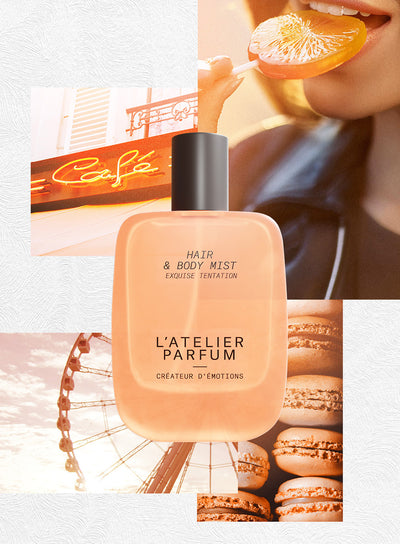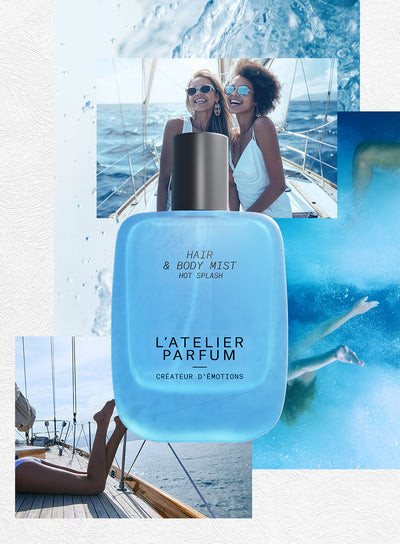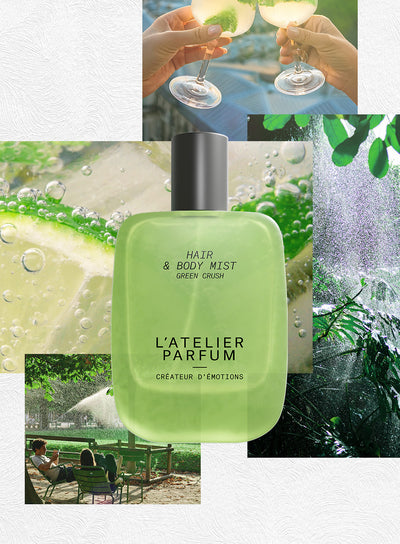Pourquoi un parfum ne sent-il pas pareil sur tout le monde ?

Have you fallen for someone else's perfume, only to find it smells completely different on you? That’s perfectly normal. A fragrance reacts with your body, your skin, and even your lifestyle. Here’s why.
Your Skin’s pH Level
The skin has a natural pH level (potential hydrogen), which typically ranges between 4.5 and 6.5. This level of acidity can influence how a perfume develops.
Oily or Dry Skin?
The way a perfume is absorbed also depends on your skin type:
Body Temperature
Your body heat plays a key role in how a fragrance evolves:
Your Diet Matters Too
What you eat has a direct effect on your natural body scent, and therefore on how a fragrance behaves:
Sweat and Emotions
Perfume also reacts to your hormones and perspiration:
Climate’s Role
Weather conditions greatly affect how a perfume diffuses:
So if a perfume doesn’t smell the same on you as it does on someone else, that’s not a flaw — it’s a testament to its uniqueness! Many factors — from skin pH and type, body temperature, diet, emotions, and even the weather — influence how a fragrance unfolds on your skin.
Your Skin’s pH Level
The skin has a natural pH level (potential hydrogen), which typically ranges between 4.5 and 6.5. This level of acidity can influence how a perfume develops.
- Acidic skin (lower pH) tends to intensify certain notes and can alter sweet or floral accords.
- Alkaline skin (higher pH) may make the fragrance lighter or cause it to fade more quickly.
Oily or Dry Skin?
The way a perfume is absorbed also depends on your skin type:
- Oily skin: Natural oils help trap fragrance molecules, enhancing longevity and intensity. Woody and oriental notes often shine on this skin type.
- Dry skin: Tends to absorb perfume less effectively, which can reduce both its lasting power and sillage. On dry skin, top notes evaporate more quickly.
Body Temperature
Your body heat plays a key role in how a fragrance evolves:
- Warmer skin (naturally or from physical activity) releases perfume more quickly, which can intensify some notes and shorten its wear time.
- Cooler skin holds on to scent molecules longer, slowing evaporation and enhancing longevity.
Your Diet Matters Too
What you eat has a direct effect on your natural body scent, and therefore on how a fragrance behaves:
- Sulfur-rich foods (like garlic, onion, cabbage, strong spices) can interact with perfume and alter certain notes.
- Sugary and fatty foods tend to make your skin smell "softer", which can amplify sweet or vanilla-based fragrances.
Sweat and Emotions
Perfume also reacts to your hormones and perspiration:
- People who sweat more may find their fragrance changes more rapidly and becomes stronger. This can affect floral or citrus accords in particular.
- Stress and fatigue can impact your skin’s chemistry and alter how a scent is perceived.
Climate’s Role
Weather conditions greatly affect how a perfume diffuses:
- Hot and humid climates: Heat boosts the diffusion of volatile molecules, sometimes making perfumes overpowering.
- Cold and dry climates: Fragrances are usually more subtle, as the skin absorbs the oils more quickly.
So if a perfume doesn’t smell the same on you as it does on someone else, that’s not a flaw — it’s a testament to its uniqueness! Many factors — from skin pH and type, body temperature, diet, emotions, and even the weather — influence how a fragrance unfolds on your skin.





